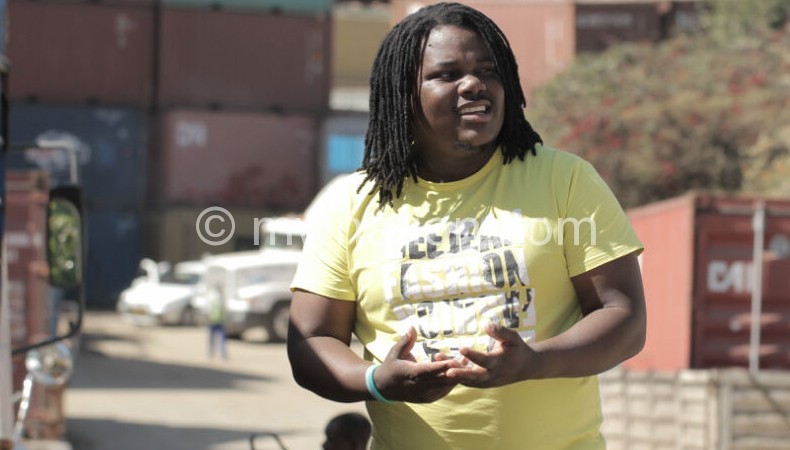Mind the lyrics
Someone recently observed, rather ruefully, that four-letter words seem to be the very blood that feeds American and Western hip-hop. Malawian musicians, however, seem to have caught on the bug lately.
While some musicians have taken a no holds barred approach by having explicit content in their lyrics, others have tended to self-censor their material with suggestive innuendos.

One song that is brazen in its approach is the single, Mfumu Sapw**a, by Rasta Dema currently being shared on the social media and played in some bars and public minibuses. It has the type of content that is not suitable for a family newspaper like the Weekend Nation. Anne Matumbi attempts to be subtle in his song, Chondiwawa, but in the chorus, he leaves no one in doubt what associations he intended with the lyrics.
In the song of the moment, Na Lero remix, Nepman brings together an eclectic mix of urban musicians to render a song to rival any in recent memory.
While some of the artists featured in Na Lero sing verses you can play within earshot of your grandma, you can feel the strain as others attempt to stay on the safe side of morality. But some have refused to be shackled by moral sensibilities, Young Kay, for one, who sings:
You looking good in your birth suit/Is that your option of fashion?/On your max get set bwera tilaseko
If that is shocking, wait until Fredokiss delivers lyrics whose meaning are crystal clear for anyone conversant with street language as he raps:
Chintchanachamu ghetto chikushowa/Chikondi chomwe umanafunawina wake atakushowa.
While some radio stations have played this song while blipping some sensitive content, it seems strange that music by Mafunyeta, which was mild in comparison, was once banned on MBC radios for containing explicit lyrics.
However, banning songs on a national radio or TV becomes an obstruction to the right to free expression as provided for in the Constitution of the Republic of Malawi. On the other hand, there is a dilemma of balancing the right to expression with the responsibility of protecting children from being exposed to such kind of content.
In an interview with Society, national coordinator for Free Expression Institute, Peter Jegwa Kumwenda, said their organisation is against any form of censorship and recommends classification instead.
“Censorship is an obstruction to the right to free expression. What we agree with is classification, where the audiences chooses what is appropriate. If the material is not fit for children, then it should be played at night. But for those that are over the age of 18, they should make their own choices about what they want to listen to,” he said.
He added that since every right has a duty, every stakeholder of music –musician, distributors and DJs–has a responsibility about the type of music they are making available to audiences.
“Musicians should put a sticker that warns the audience about the content in their CD. I wouldn’t want to buy a CD with explicit content and then play it in front of my children. But if I know what is in it, I would play it when I am not around them,” said Kumwenda.
He said distributors also need to make sure they are selling the music to people who are old enough for the kind of music.
President of Musicians Union of Malawi (MuM) Chimwemwe Mhango said that it is unfortunate that some artists are recording explicit songs.
“Our friends have structures to lock their TVs or radios so that children should not listen to such material. Where there are rights there are also responsibilities, so the artists have to have limits in expressing their rights,” said Mhango.
Mhango said there is need to classify music content with stickers but was quick to note that it is hard to ensure that such material does not fall in the hands of children.
“There are some songs that are just suggestive in nature and for those, there is need that the DJs play at the right times, for example, at night when children are asleep,” said Mhango.
BlakJak, an urban musician whose music has also been in the spotlight for its suggestive lyrics, said that Malawi does not have the structures to classify its music and protect children from listening to such material.
“To be honest, there are no explicit songs in Malawi, people always censor themselves by using a language that is discrete in a way. But it is the duty of the DJs to play music at the appropriate time for a particular audience,” said BlakJak.
He added that it is a duty of every musician to make sure they have a radio version of a song and another for a different audience each time they feel their song carry material that is explicit or suggestive.
“The problem is that we cannot have stickers on our music because once you do that no one will listen to your song. No one wants to be associated with that,” he said.
He said what is needed is for musicians to record music that is not too extreme in handling issues of drugs, sex and violence.





